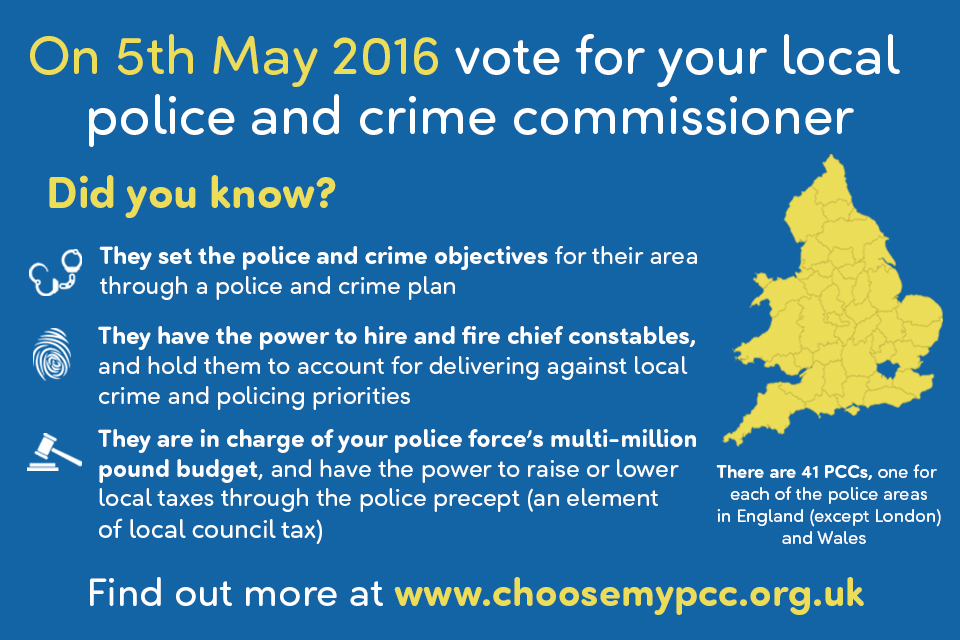Police and crime commissioners: the choice is yours
Home Secretary Theresa May on the local police and crime commissioner elections taking place on 5 May 2016.

When I became Home Secretary in 2010, police governance was broken and in need of radical reform.
At that time, police authorities were theoretically responsible for holding forces to account. Yet in reality these bodies were nothing more than invisible committees of appointed councillors.
They were tasked with acting on behalf of the public and had a duty to engage local people and businesses in setting priorities and local taxes, but they did nothing of the sort.
Attendance at public meetings was often very poor, only 1 in every 15 people knew that police authorities even existed, and their decisions were far from easily available, often hidden amongst lengthy minutes posted on their websites.
In 2010, an inspection by Her Majesty’s Inspectorate of Constabulary found that only 4 of the 22 police authorities inspected were judged to have performed well in 2 of their primary functions – setting strategic direction and ensuring value for money for taxpayers.
That is why, in 2012, I introduced police and crime commissioners (PCCs) to be powerful local figures, directly elected and accountable to the people they serve.
They have engaged with the public over the past 3 and a half years in ways that police authorities never did or could.
Collectively their websites are being visited by over 85,000 people and they receive upwards of 7,000 pieces of correspondence every month.
They are elected, visible, well-known in their communities and accountable for the decisions they take.
But there is scope for PCCs to go further. We have included new measures in the Policing and Crime Bill, which is currently passing through Parliament, which enable PCCs, where a local case is made, to take on responsibility for fire and rescue services and even create a single employer for the 2 services.
We have also been exploring what role PCCs could play in the wider criminal justice system. There is after all a reason why we included the words ‘and crime’ in the title of PCCs.
According to the Independent Crime Survey for England and Wales, PCCs have presided over a fall in crime of more than a quarter since their introduction, during a time when police funding has reduced by a fifth.
This is no mean feat. The accomplishments of PCCs matter, they matter to local people and they matter for the integrity of the policing system as a whole.
But, most importantly they matter for the historic principle of policing by consent. Because if you haven’t been impressed by your PCC, or you think they haven’t achieved what they said they would, in just a few weeks’ time you can say so in the strongest terms possible - by voting for someone else at the ballot box.
Conversely if you believe your PCC has made a real difference then you can vote for them to continue their important work. The choice is yours.
For more information on the PCC elections on 5 May, and to find out who is standing in your local area: www.choosemypcc.org.uk.